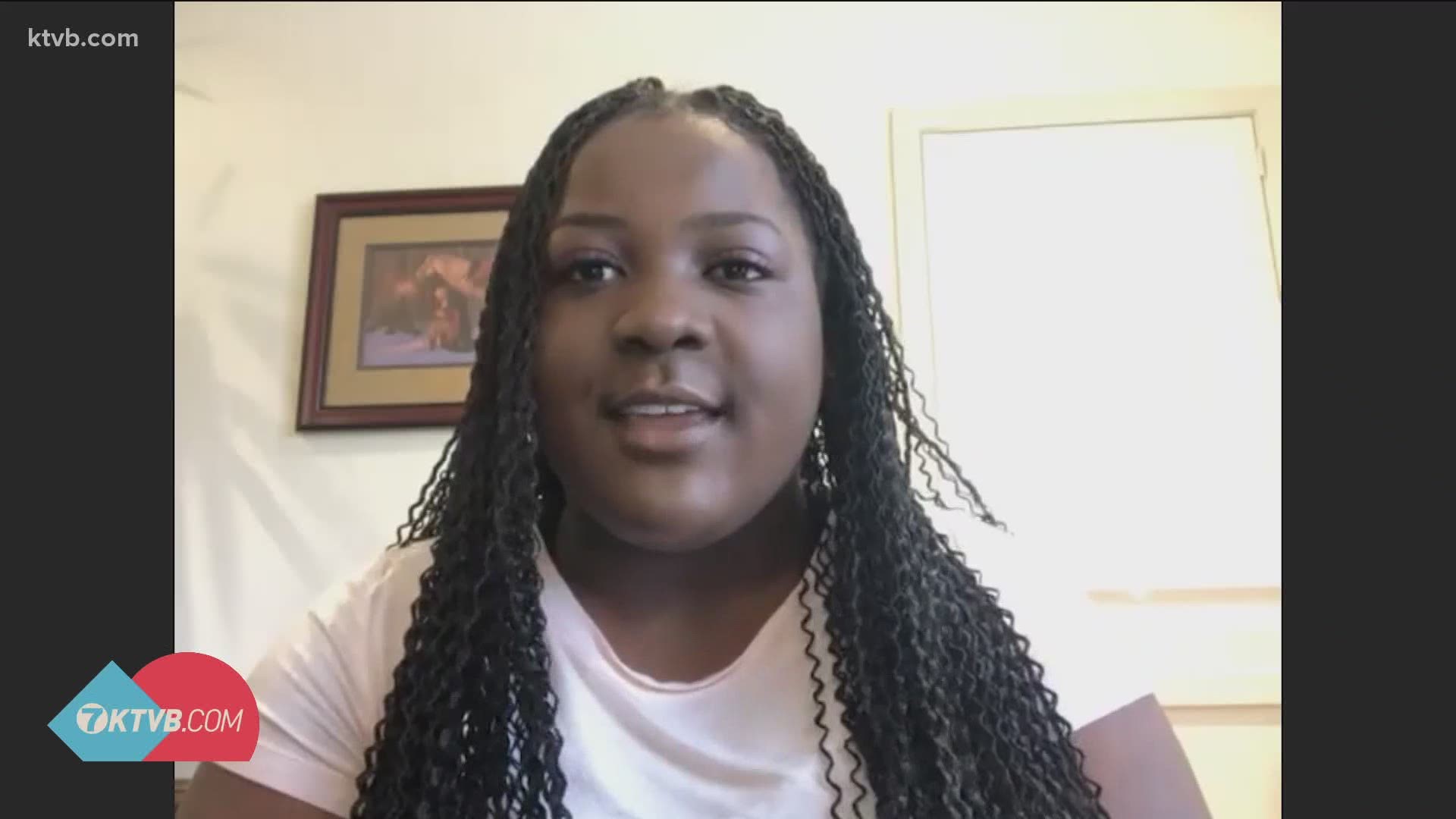BOISE, Idaho — In Idaho, there are very few people who could ever title an essay "My Brown Skin." 93% of Idahoans are white, making the Gem State the fifth whitest state in the country.
Despite this, 17-year-old Olivia Malmgren wrote an essay under that title for her Centennial High School English class last fall.
The essay was titled "My Brown Skin: In a White World."
Olivia's mother, Suzanne Malmgren, had already given birth to four children when the family decided to adopt three more, two of which are Black.
Adopted in 2003, Olivia was the youngest of those three and was brought to Idaho when she was just five days old. Growing up in a mostly white family in a mostly white state, she has never known anything else.
Her essay explored the physical differences between herself, her family and her friends. It also explores issues she never expected to face having grown up how she did.
To Olivia, this was one of the easiest essays she's ever written.
"I wrote this essay because I was supposed to write on a life-changing event or something that changed you as a person," Olivia said. "I realized that I kind of had an identity crisis of my own, of who I'm supposed to be with my race."
Olivia has experienced this "identity crisis" her entire life. Growing up in Idaho, she felt as though she was white, due to television ads, social media ads and the majority of Idahoans being white.
This white culture made being Black a foreign concept to her, something she said was extremely hard to admit and accept.
"It was kind of like I was turning my back on who I'm supposed to be," Olivia said. "But I'm supposed to be Olivia Malmgren that's raised in Idaho with my white family, and that's who I am."
Although she wanted her essay to be an eye-opener for others, she also wrote it for herself as a way of "coming in" to herself. She has learned lessons about herself through personal experiences, some of which have been less than pleasant.
"I learned these lessons through experiences I had while walking through a store and being followed, knowing that people were suspicious of me simply because I am Black," Olivia said. "It feels awful, honestly. It's like, I'm not going to do anything. There is nothing to assume that I would do any of those things except that I am profiled."
Olivia's mother described herself as a minimally emotional person. Her daughter's essay, however, was incredibly powerful.
"I was so amazingly happy that she could translate the feelings she had onto paper in a way that I could understand," Malmgren said. "The mother bear in me was so sad that I couldn't protect her from that and so joyful that she learned to how to do that herself in a gracious and assertive way that allows people to hear her."
Olivia's father helped her write the final part of the essay, the hardest part but also her favorite part. The final words of the essay read "and who is harmless," because unfortunately, as her father explained, people will see her as "scary."
That last sentence is now like an anthem to Olivia.
As for everyone who reads or hears this essay, she wants to remind them that you can't judge a book by its cover. Everyone has their own story to tell, and their cover might not match the book whatsoever.
Join 'The 208' conversation:
- Text us at (208) 321-5614
- E-mail us at the208@ktvb.com
- Join our The 208 Facebook group: https://www.facebook.com/groups/the208KTVB/
- Follow us on Twitter: @the208KTVB or tweet #the208 and #SoIdaho
- Follow us on Instagram: @the208KTVB
- Bookmark our landing page: /the-208
- And we also turn each episode into a podcast or Podbeam
- Still reading this list? We're on YouTube, too:

